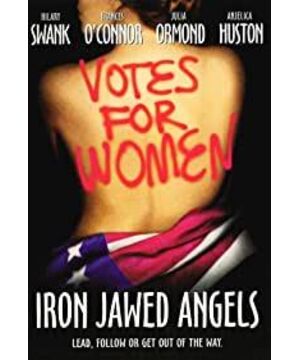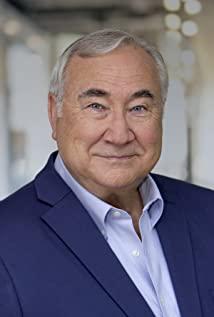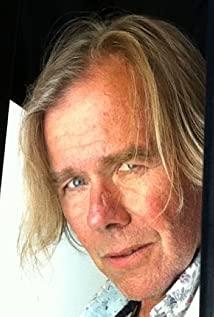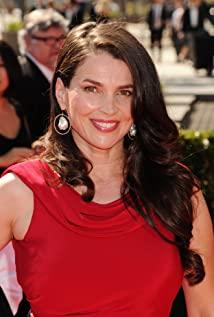The film tells the story of American women's unremitting struggle for the right to vote in 1910, mainly around Alice Paul and Lucy Burns. Including the 1913 Women's Suffrage March, the founding of the National Women's Party, the Silent Sentinel and prison, the hunger strike, and the passage of the 19th Amendment, several important events. The film is an ordinary historical film, neither too amazing nor too bad. The hardships of women gaining the right to vote cannot be summed up in one film, but I still admire their courage and perseverance. Below, I will talk about a few points in the movie that impressed me.
First, is feminism the same as women's supremacy? Today, there are still many people who sigh about "feminism", believing that "feminism" is the so-called idea that women are superior to men, that women are superior to men, and that men dominate men. But it's not feminism, it's a female-first feminist chauvinism. There is still a fundamental difference between the two. It is true that women have some congenital disadvantages compared to men, but this cannot be the basis for women to be discriminated against and treated unfairly. Feminism does not require women to be superior to men, all it needs is to eliminate inequality between men and women. Men can go out to work, why can't women? Men can have the right to vote, why can't women? As Alice says in the movie; "You want to have a place in the industry you live on, and so do I. You want some means of self-expression, some way to satisfy your personal ambitions, and so do I. You want the government to hear about yourself. voice, and so do I."
Secondly, a woman's self-reliance does not mean that she will not choose marriage and will not desire a family. In the film, Lucy says: "I'll be thirty in a year's time, and I can see that scene right now - alone with a hairless cat named Leicester, dying in Brooklyn. "I'm tired of being alone. If you say you are not tired, you are lying. "The strong women I think do not mean choosing not to marry for life and rejecting love in order to show their independence. I think women who are independent and self-reliant know better what they want. Independence here is not just about life, Economic independence also refers to spirituality. She will not change herself for the pressure of society. She is more aware of what she wants and how to do it. I admire the pioneers in the early stage of the women's movement. Some of them have never married for the sake of women's equality. I can't praise their courage and perseverance in words, but I want to say that not getting married is not a necessary requirement for independent women. There is no necessary requirement between the two. Whatever choice you make is right, just follow your heart.
In the end, in the film, I'm more concerned with Senator Layton's wife than Alice and Lucy. Alice and Lucy represent an already egalitarian group, while MP Layton's wife represents a shift. From the very beginning, Lucy refused when she invited her to join the parade; later, she donated to NAWSA, but refused to join because she could not embarrass her husband; then she fought with Alice, raised the flag outside the White House together, and was killed together. Arresting and refusing her husband's bail is actually the awakening and manifestation of women's consciousness. This change became more apparent when the husband sent his two children away. In the eyes of the husband, wives were nothing more than his appendages. They were low in intelligence and could not make correct judgments. They could only be good wives and mothers at home. Dependent on men's lives, some of their actions outside will bring shame to themselves. . . . . . All kinds of speeches and ideas reflect the idea of male supremacy. The labels of daughters, wives, and mothers are affixed to women, forcing them to dedicate their families in the name of "love" and to serve patriarchy or patriarchy. This in itself is a great inequality. A woman belongs to no one, she belongs only to herself. At the end of the film, the husband went to visit his wife in prison, and saw the note given by the wife. At this time, he already understood the wife's practice, which may also be a change of mind for the husband.
Finally, on August 26, 1920, the Nineteenth Amendment to the U.S. Constitution came into effect, and women gained the legal right to vote. Alice and Lucy smiled at each other under the blue sky with five-pointed stars. This is the perfect ending of the movie, but it is not the perfect ending of the movement for women's equality. Even today, there are still various phenomena of injustice to women in society, such as women being fired from the company for taking maternity leave; domestic violence of husbands against wives; abduction and trafficking of women Behaviour and so on, there is still a long way to go to get true fairness. In the film, despite the contradictions and differences between NAWSA and NWP, they both finally made efforts to obtain women's suffrage, "Girls Help Girls", women's efforts to fight for equality will not stop.
View more about Iron Jawed Angels reviews











